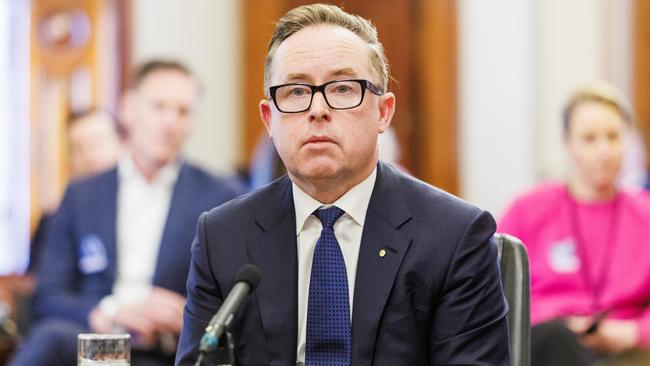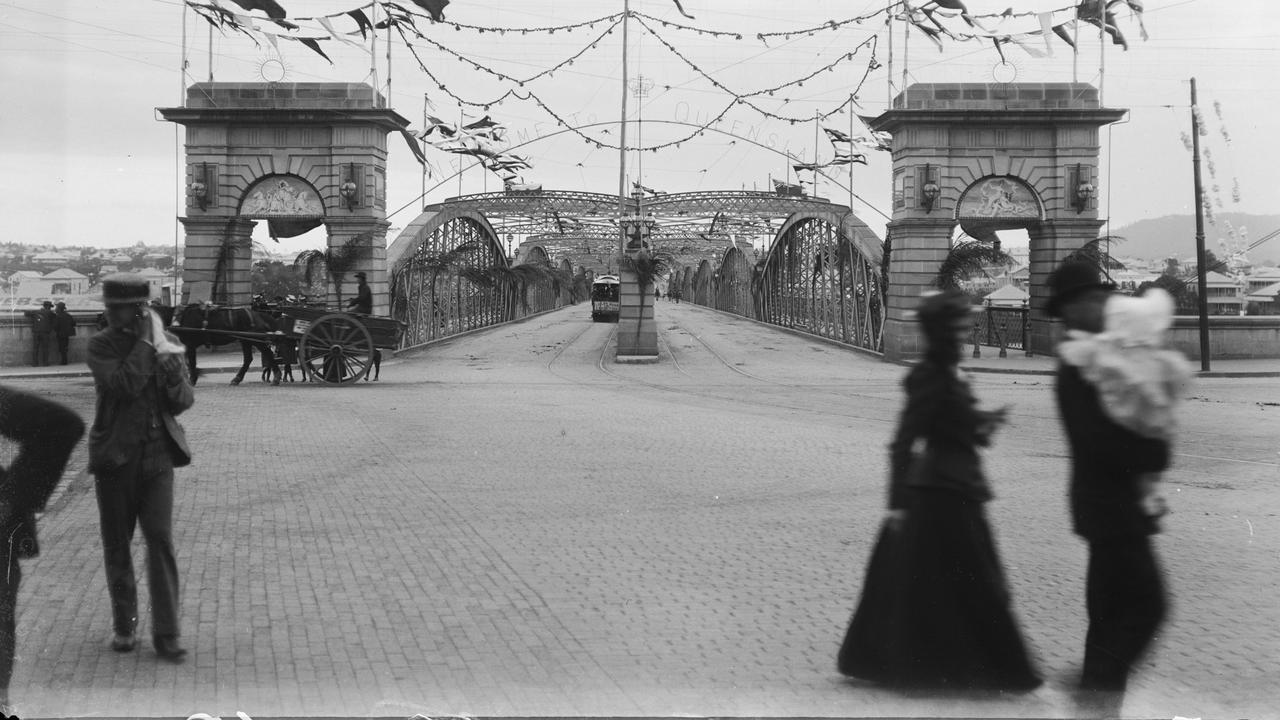Alan Joyce urges dramatic action to save the Sydney Theatre Company as he quits the board
Alan Joyce has ‘reluctantly’ resigned from the Sydney Theatre Company board chairmanship as a pro-Palestine protest is estimated to have cost the STC $1.5m.

A pro-Palestine protest by Sydney Theatre Company actors last November has plunged the company into such a deep financial hole that the company’s exiting chairman, Alan Joyce, has urged “dramatic action” to ensure its survival.
Mr Joyce said he had “reluctantly” resigned as chairman of STC because he did not have the time to devote to fixing the crisis.
The financial fallout from the unauthorised protest by three actors – who wore Palestinian keffiyeh scarves at opening night of The Seagull – has been estimated at $1.5m or more, due to angry patrons cancelling tickets and donors withdrawing their support.
In his resignation letter, seen by The Australian, Mr Joyce said the protest had dangerously worsened STC’s already perilous financial position.
“It is clear that the company’s significant operating deficit has become dramatically worse as a result of recent events which has caused a large drop in revenue,” he said.
“I urge the management and board to make the tough and immediate decisions required to ensure the company’s ongoing survival. They won’t be easy, and they won’t be popular.”

Options open to STC include cutting back on production expenditure and staff levels, seeking greater financial input from external sources, including donors and government.
Mr Joyce was appointed chairman of STC in March last year and has been on leave of absence since October, following his earlier than planned retirement as chief executive of Qantas.
He was not present at the Roslyn Packer Theatre on November 25 when the three actors launched their keffiyeh stunt on an unsuspecting audience, causing an immediate backlash.
Three members of STC’s governance teams – PR veteran Judi Hausmann, fashion executive Alex Schuman, and writer Ruth Ritchie – resigned in protest at management’s handling of the crisis.
A donor to STC, businessman Michael Markiewicz, who has given thousands of dollars to the company, said he was withdrawing his support.
It’s understood that Mr Joyce had been in close communication with his deputy chair, Ann Johnson, in the two months since the incident, but was unable to devote more time to addressing the “critical state” of the company.

However he was unable to commit to the significant amount of time the chairman would need to spend with management to develop a “comprehensive turnaround plan”.
He formally resigned on January 5 and on Wednesday STC announced Ms Johnson as his successor.
“I had every intention of returning to take the role of chair after my leave of absence ends in February,” Mr Joyce said in his letter to members of the board.
“However, given the critical state of the STC and the immediate need for dramatic action, I do not believe that I will be able to devote the considerable time necessary in the next couple of months and I have reluctantly decided to resign from the STC board.”
He added: “Although I will reluctantly be stepping aside, I will continue to be passionate about the amazing work the STC produces, and I wish the company all the best for the future.”
Ms Johnson thanked Mr Joyce for his support of STC as it continued to work towards financial stability following the pandemic.
“Alan understood the significant challenges that STC as a not-for-profit arts organisation faces amid rising costs and increasingly uncertain revenues,” she said.
“Arts boards around Australia are working harder than ever to ensure the long-term financial viability of their organisations and the next few years will be difficult for the performing arts sector.
“Sydney Theatre Company is very grateful for Alan’s leadership and generous philanthropic support which have helped the company continue to produce world class theatre,” said Ms Johnson.







To join the conversation, please log in. Don't have an account? Register
Join the conversation, you are commenting as Logout